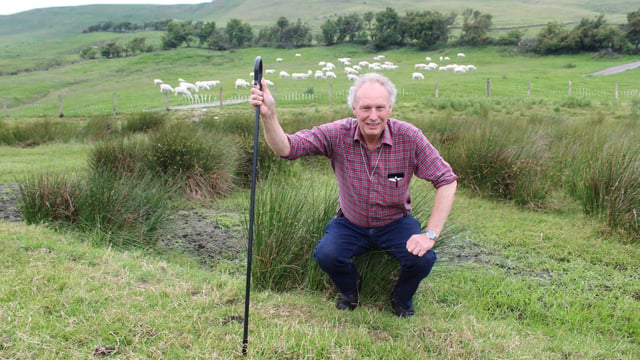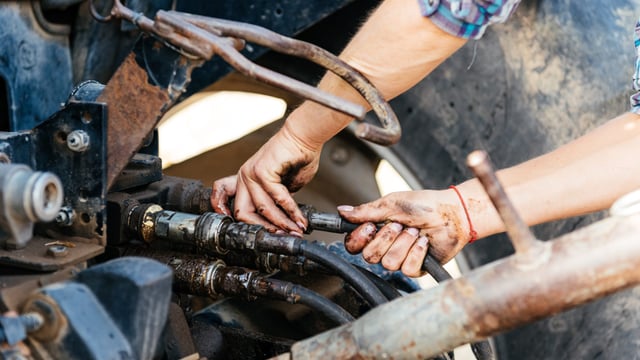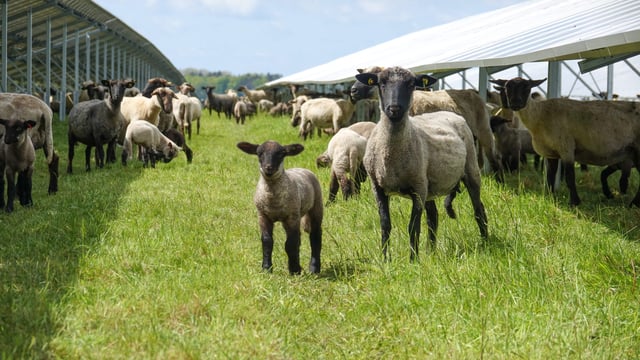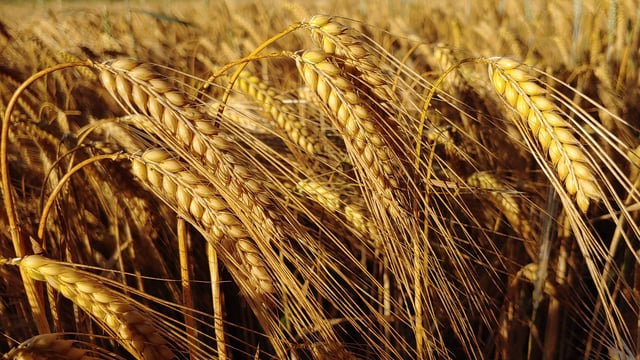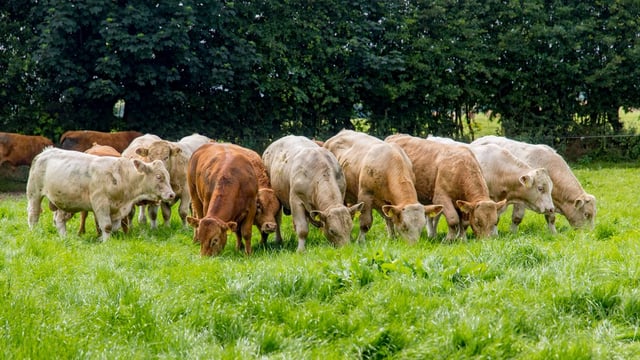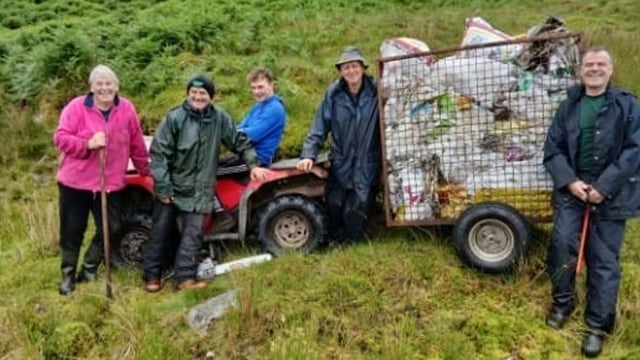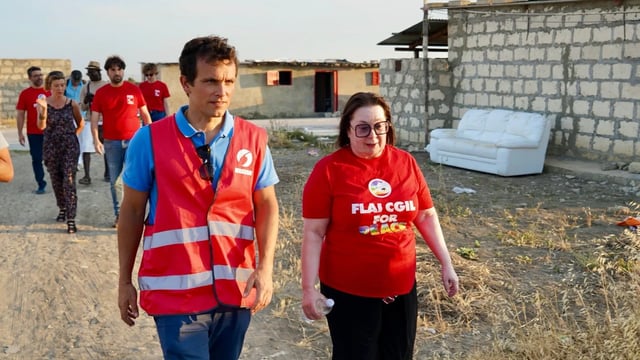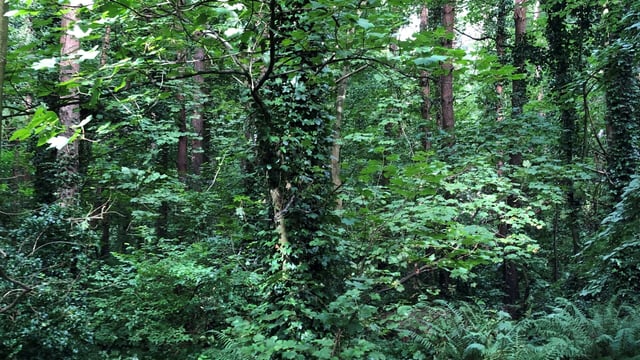Supports for sucklers, wool and Irish speakers: INHFA sets out budget priorities
The Irish Natura and Hill Farmers' Association (INHFA) has put forward its pre-Budget 2026 proposals to government.
It has done so "on the back of what has been a good year for suckler, beef and sheep farmers", the association has said in its budget document, seen by Agriland.
However, these farmers are also "well aware that prices could turn and with costs that remain very high, they could find themselves operating at break-even or even at a loss".
On this basis, the INHFA has stressed that direct supports are "still critical and in our proposals, we outline a clear strategy for what is needed".
Designated lands and nature restoration
The INHFA has recommended the immediate establishment of a fund to deliver a payment of €300 per hectare for every hectare of private landowners' designated land, and a fund to compensate landowners who are selling designated lands.
"This fund should make up the difference between the price got and the market value of the land," the association said.
Meanwhile, Ireland is currently developing its National Restoration Plan as part of the Nature Restoration Regulaton.
The INHFA has said that before any final plan is drafted, there needs to be a budget set out for each year from 2026 to 2030 "detailing costings for specific actions and the cost to reimburse income loss as a result of the plan".
This budget "needs to indicate where this money is coming from", the INHFA added.
ACRES and ANC
In the Agri-Climate Rural Environment Scheme (ACRES), the INHFA is seeking a bonus payment of €2,000 for farmers that achieve a habitat score of seven or above and "ensure payment is made on every hectare similar to the format in REPS".
"However, as the scheme progresses, we don’t now see the overall budget being used and are calling for any unused funds to be used to increase payments under the Areas of Natural Constraint (ANC) scheme," the INHFA said.
Also in the ANC, the INHFA is seeking an increase of €50 million to the scheme budget, and to bring farmers in category 1 up to a maximum of €5,000 and those in category 2 up to €4,000.
Suckler scheme
The INHFA is seeking an increased marketing budget of €6 million annually to help promote naturally-reared suckler beef across the EU and beyond.
For suckler farmers, the Suckler Carbon Efficiency Programme is "unreachable for many due to its make-up and specifically the Bord Bia requirement", the INHFA said.
On this basis, the association is looking to the Beef Welfare Scheme, and is seeking a payment of €200 per cow on the first 10 cows with a reduced payment on the next 10 cows.
"To deliver this we need a budget allocation of €85 million," the INHFA said.
Sheep and wool
For the sheep sector, the association is calling for improved supports through existing schemes.
It is seeking additional payments in recognition of increased costs and inflation to provide an overall support payment of €30 per ewe.
This should be paid at €15 per ewe in both the National Sheep Welfare Scheme and under the Sheep Improvement Scheme, the INHFA said.
In addition to this, the INHFA has also made a proposal to benefit the woollen industry - a tax on synthetic fibres, ringfenced to support woollen alternatives and the use of wool insulation in the retrofitting of homes.
The INHFA has also said that through the Infrastructure, Climate and Nature Fund there is potential to provide support for the development of an Irish woollen industry.
To help in addressing the impact of dog attacks on sheep, the INHFA is calling for DNA sampling of all dogs.
It is asking that the state pays for the initial cost of this, up to a specific time period. It is also seeking a national media awareness campaign on dog control.
Forgotten farmers
Last year's budget saw the announcement of an allocation of €5 million for a group of farmers who, for reasons outside of their control, were unable to access installation aid and other young farmer supports.
"A substantial part of this commitment is coming in the form of a lump sum payment and we understand work has progressed on this," the INHFA said.
"In total there could be up to 4,000 farmers in this category. Through 2026 we need to get these farmers identified and payments issued.
"On this basis we are seeking an additional €15 million to the €5 million provided for in last year’s budget."
Retirement scheme
The INHFA is urging the government to commit to a "farm retirement scheme" and to provide a start date.
"Such a scheme should be available to farmers from the age of 60 and available for 15 years or to a maximum age of 75," the association said.
"We are recommending that the scheme commences with a payment rate of €350 per week and increase in line with inflation."
Among a number of other proposals in its submission to government, interestingly, the INHFA has also proposed an additional support payment for Irish-speaking farmers living in Gaeltacht areas.
It recommended an annual payment of €3,000 to farmers in these areas that have a competency in the Irish language. The overall estimated budget is €3 million.


